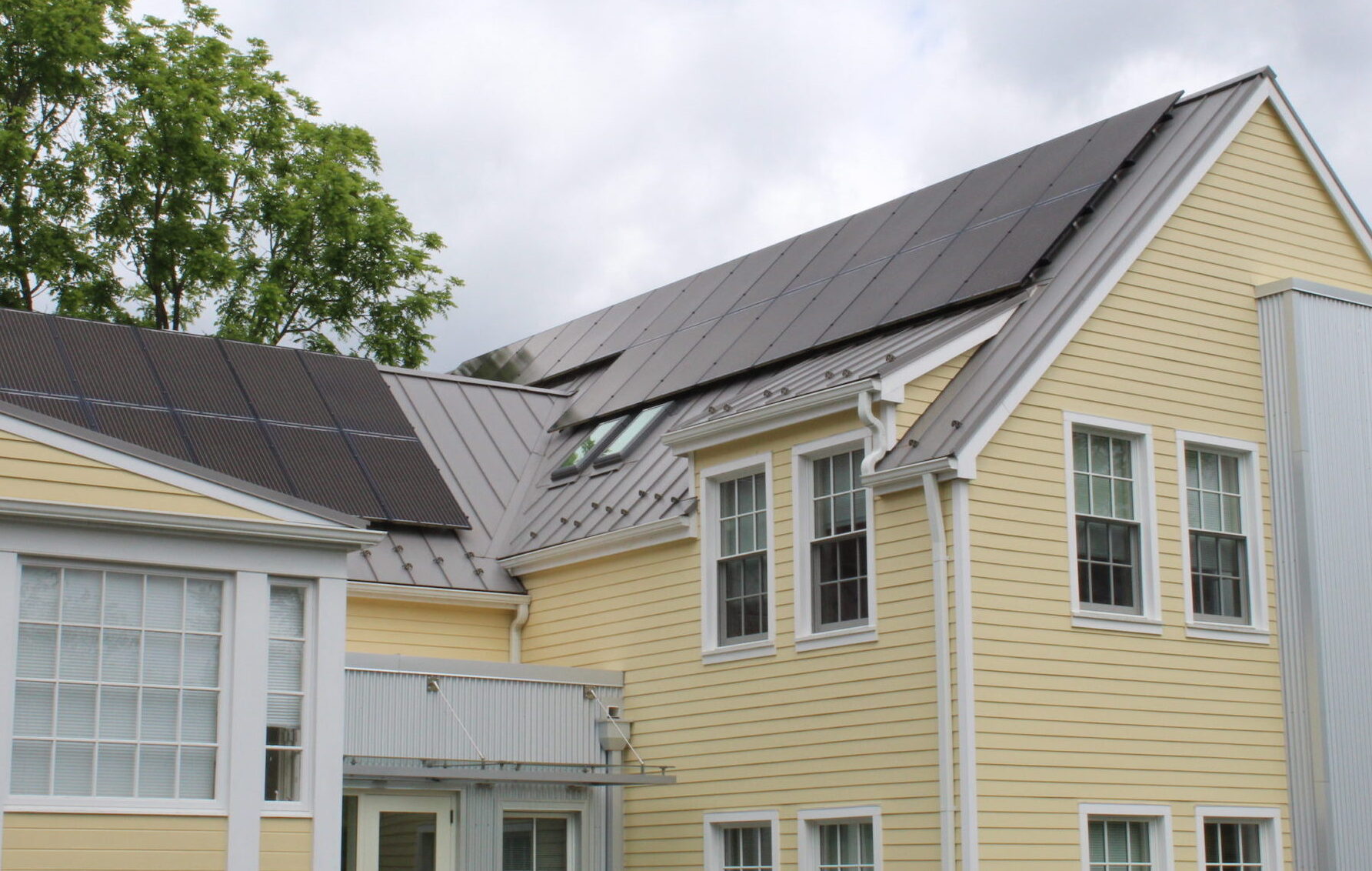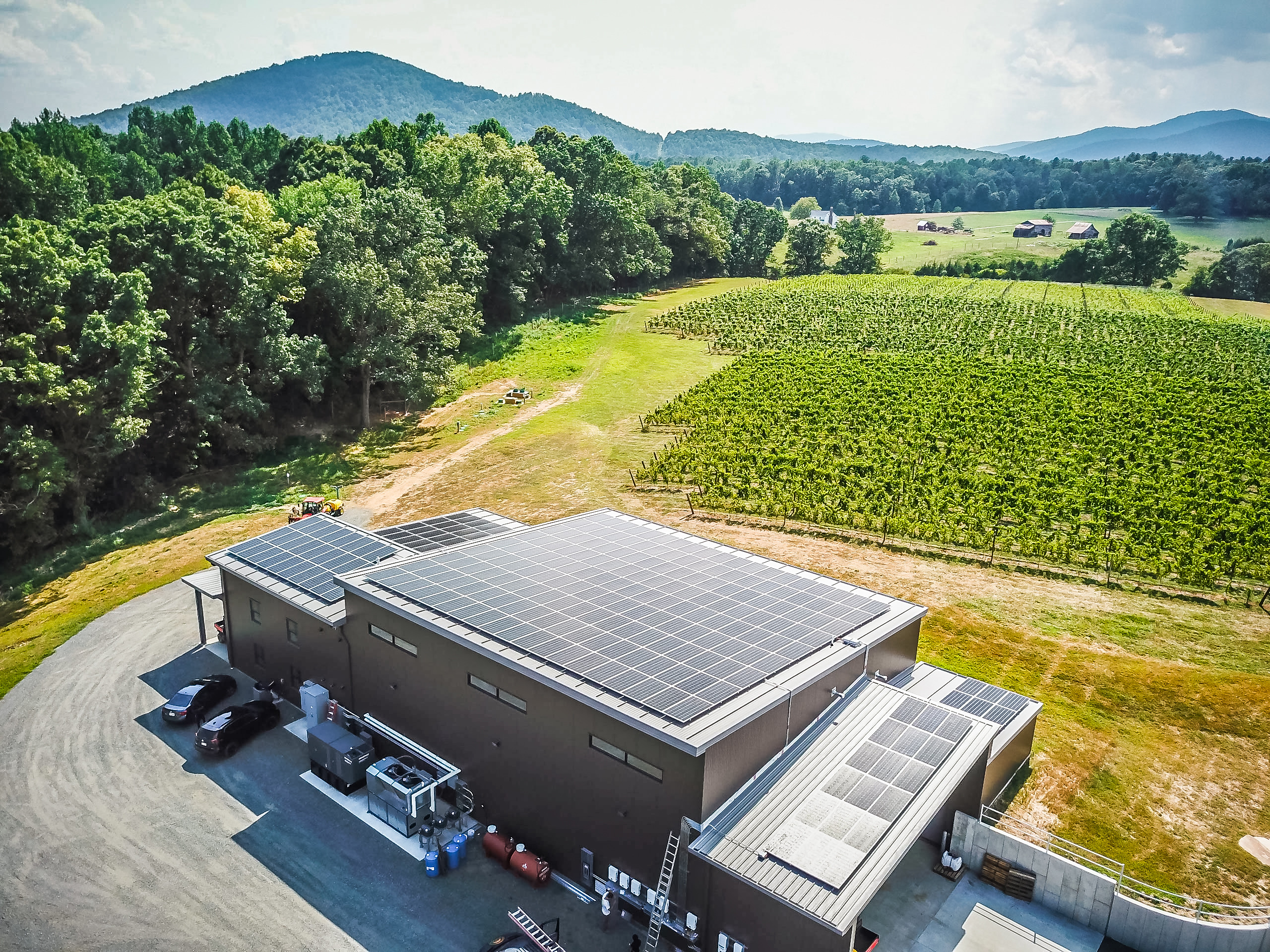Bill of the Day: Expanding Solar Energy
Updated on February 20th, 2023.

Through distributed/shared solar, low-to-moderate income Virginians will be able to greater participate in solar programs and offset all or a majority of the costs of a solar energy system. Image Credit: Piedmont Environmental Council (PEC)
Why should Virginia go solar?
Going solar reduces energy burdens and costs for Virginians while making our buildings more energy efficient and clean. Installing more solar is critical for Virginia to hit our 100% clean energy targets outlined in the Virginia Clean Economy Act (VCEA).
Unfortunately, there are many policy barriers in place that hinder rooftop and distributed/shared solar options for Virginians (to learn why, read our “BRINGING MORE RESILIENT ENERGY TO VIRGINIA COMMUNITIES” policy paper).
On the bright side, a series of bills to promote distributed solar have passed through the Senate with bipartisan support and are now headed to the House! These bills will:
- Develop recommendations for schools to be solar-ready when constructing or renovating buildings.
- Expand shared solar programs throughout the state.
- Help Virginia take advantage of federal Inflation Reduction Act (IRA) funds to advance solar projects.
Solar Bills To Support in the General Assembly
A series of solar bills have passed the Senate with bipartisan support, but must still be passed by the House of Delegates. The House will soon hear and vote on these solar bills:
(Senator Hashmi) Expands solar and energy efficiency projects for low-income and moderate-income Virginians by empowering the Clean Energy Advisory Board to apply to the Environmental Protection Agency (EPA) for grant funds made available via the Inflation Reduction Act (IRA)’s Greenhouse Gas Reduction Fund.
Expands the shared solar program to customers in Appalachian Power Company and Old Dominion Power Company’s territories while setting limits on monthly utility bills. This makes our energy transition more equitable by reducing energy costs for participating customers, especially low-income customers who are exempt from the minimum bill.
Allows more Virginians to participate in our clean energy transition by expanding Dominion’s shared solar program and requiring that a customer’s net bill for participating in the shared solar program will not exceed the minimum bill established by the State Corporation Commission (SCC).
Develops recommendations on strategies to assist interested school divisions with incorporating renewable energy generation facilities in the construction or renovation of school buildings. Companion to HB1852.
Directs the Commission on School Construction and Modernization, in consultation with the Department of Energy, to develop and make recommendations on strategies to assist interested school divisions with incorporating renewable energy generation facilities in the construction or renovation of school buildings Companion to SB848.
Take Action

Rooftop Solar at Hark Vineyards in Earlysville, VA. Image credit: Sarah Stryker
Expanding our solar programs to include our schools, public facilities, and residential homes will create jobs, bolster energy efficiency, and decrease electricity costs. With the Inflation Reduction Act (IRA), there is no reason for Virginia to leave these federal funds on the table. Through these bills, low-to-moderate income Virginians will be able to greater participate in shared solar programs and offset all or a majority of the costs of a solar energy system.
Unfortunately, all of our supported solar bills were killed in the House by the end of session. We will continue to work with our Partners at the Sierra Club Virginia Chapter, SELC, and others to promote solar development in the Commonwealth in the years to come.
Read More on Clean, Efficient Energy
Maximizing Clean Energy Tax Credits: User Guide for Governments, Schools, Nonprofits
BlueGreen Alliance released a resource guide explaining how tax-exempt entities, such as schools, hospitals, and governments, can claim tax credits through "direct pay" for clean energy technologies through the Inflation Reduction Act.
Federal Funding Roadmap for Public Buildings
BlueGreen Alliance released a resource guide that identifies the federal funding opportunities available through the Inflation Reduction Act, The Bipartisan Infrastructure Law, and the American Rescue Plan, that can be used to upgrade public buildings.
IRA & IIJA Webinar
Generation 180 released a webinar that informs individuals and communities how to access new federal funds under the Inflation Reduction Act, the Infrastructure Investment and Jobs Act, and other new Federal funding in their communities.
Implementation Framework for the Greenhouse Gas Reduction Fund
The Environmental Protection Agency released a framework to implement the Greenhouse Gas Reduction Fund, aimed at financing projects nationwide to reduce greenhouse gas emissions and air pollution through the Inflation Reduction Act.
Climate & Clean Energy Policy: 2023 General Assembly Review
VCN and our Partners pursued legislation to defend our clean energy policies, reform utility rate regulation, and expand distributed solar energy.
Bill of the Day: Expanding Solar Energy
Installing solar reduces energy burdens and costs for Virginians while making our buildings more energy efficient and clean. It's also critical to hit our 100% clean energy targets outlined in the Virginia Clean Economy Act (VCEA).
7 Truths About Virginia’s Clean Car Standards
There are many misconceptions about how the Clean Car Standards affect Virginians. We’re here to set the record straight with 7 truths about the Clean Car Standards.
User Guide to the Inflation Reduction Act
BlueGreen Alliance released a user guide to help understand the structure of the Inflation Reduction Act, including its funding, mechanisms, and labor, equity, and justice provisions.
ROUNDUP: Virginia Energy Plan
Virginia Conservation Network and our partners called on the Governor to use this plan to continue to map out Virginia’s clean energy future and meet our goal to be carbon-free by 2050. Instead, Youngkin’s plan seeks to undermine the Virginia Clean Economy Act, repeal our Clean Car Standards, and invest in unproven technologies.




